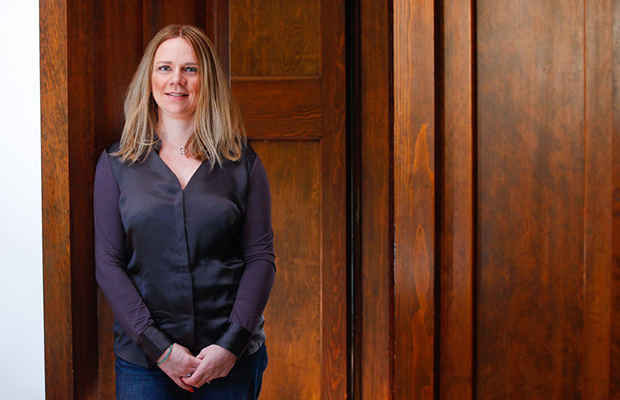
Living with congenital heart disease
If you were born with a heart condition you may face lifelong physical, emotional and practical challenges. We hear from experts and people with first-hand experience about how to manage these challenges and live well.


If you find that having a congenital heart condition brings challenges, you’re not alone: an average of 13 babies a day are diagnosed with a congenital heart condition in the UK, and many more are diagnosed later in life. New treatments mean people are living longer, healthier lives. But some people still need several operations and may need to be on medication for life, or be dependent on a cardiac device, such as a pacemaker or ICD.
Get support with your health and wellbeing
Sign up to our fortnightly Heart Matters newsletter to receive tips on coping with difficult emotions, looking after your health and living well. Joining is free and takes two minutes.
I’d like to sign-upPsychologist Dr Liza Morton and clinical social worker Tracy Livecchi both have congenital heart conditions. Their book Healing Hearts and Minds: A Holistic Approach to Coping Well With Congenital Heart Disease aims to help people born with a heart condition, their loved ones and health care professionals.
“Tracy and I both grew up feeling the emotional support we needed was missing,” says Dr Morton. “We wrote the book we were looking for but couldn’t find. You’re in hospital a lot as a child and you’re told to be still and quiet, and to be brave and strong. It’s important to allow yourself to have a normal response to pain and distress. And if we feel anxious, stressed or depressed, it’s important for it to be acknowledged.”
Accepting uncertainty

Dr Morton and Ms Livecchi (pictured) want to pass on coping skills so people can live fulfilling lives. “We can help ourselves manage uncomfortable thoughts,” says Ms Livecchi. “Learning to accept that life is full of uncertainty, especially for those of us with a congenital heart condition, is an important skill.”
The authors suggest a number of ways to cope when emotions become overwhelming. For example, you can repeat ‘affirmative statements’ such as: ‘This will pass,’ or ‘I’m allowed to feel upset.’ Tracy adds: “Other things that can help are meditation, working to accept things you can’t change (your condition) and making a plan for what you can change, such as taking care of yourself and seeing a specialist regularly as recommended.”
It’s important to accept life is full of uncertainty
Achieving independence can be harder for someone with a serious medical condition, who may be more dependent on parents and medical professionals. Dr Morton suggests “taking the opportunity to reflect and think about whether you are fulfilling your own (realistic) goals”. Dr Morton notes, “It’s important that we recognise the often hidden barriers to fulfilling our goals, so that we can process any losses and accept any additional support we might need.”
Benefits of living differently
It’s also important to find a study/work-life balance that is right for you, and this may change over time, or after a period of ill health or surgery. “I wanted to become a psychologist and I remember being advised that I wouldn’t have the stamina,” says Dr Morton (pictured). “So I trained as a psychologist flexibly, in my own time. I’ve always had to find ways around barriers, and I’ve never worked full-time,” Dr Morton says. As her own experience shows, there is no right way to reach your goals, but it’s about finding what works best for you.
It can be helpful to think about the benefits of having lived differently than others. Dr Morton explains: “You may enjoy everyday experiences and appreciate everything as a bonus.” Ms Livecchi adds: “Other people may see some things as a big deal, while you might think: ‘That is nothing compared to heart surgery – I can deal with that.’”
Read stories from people with congenital heart disease
From retraining as an adult to taking part in a photography project about scars, people born with a heart condition share their approach to life.
 |
Maggie's story "Meeting others like me made me feel less alone." Read Maggie's story |
 |
Patrick's story "I've found some adventure." Read Patrick's story |
What to read next...
Understanding your congenital heart condition


